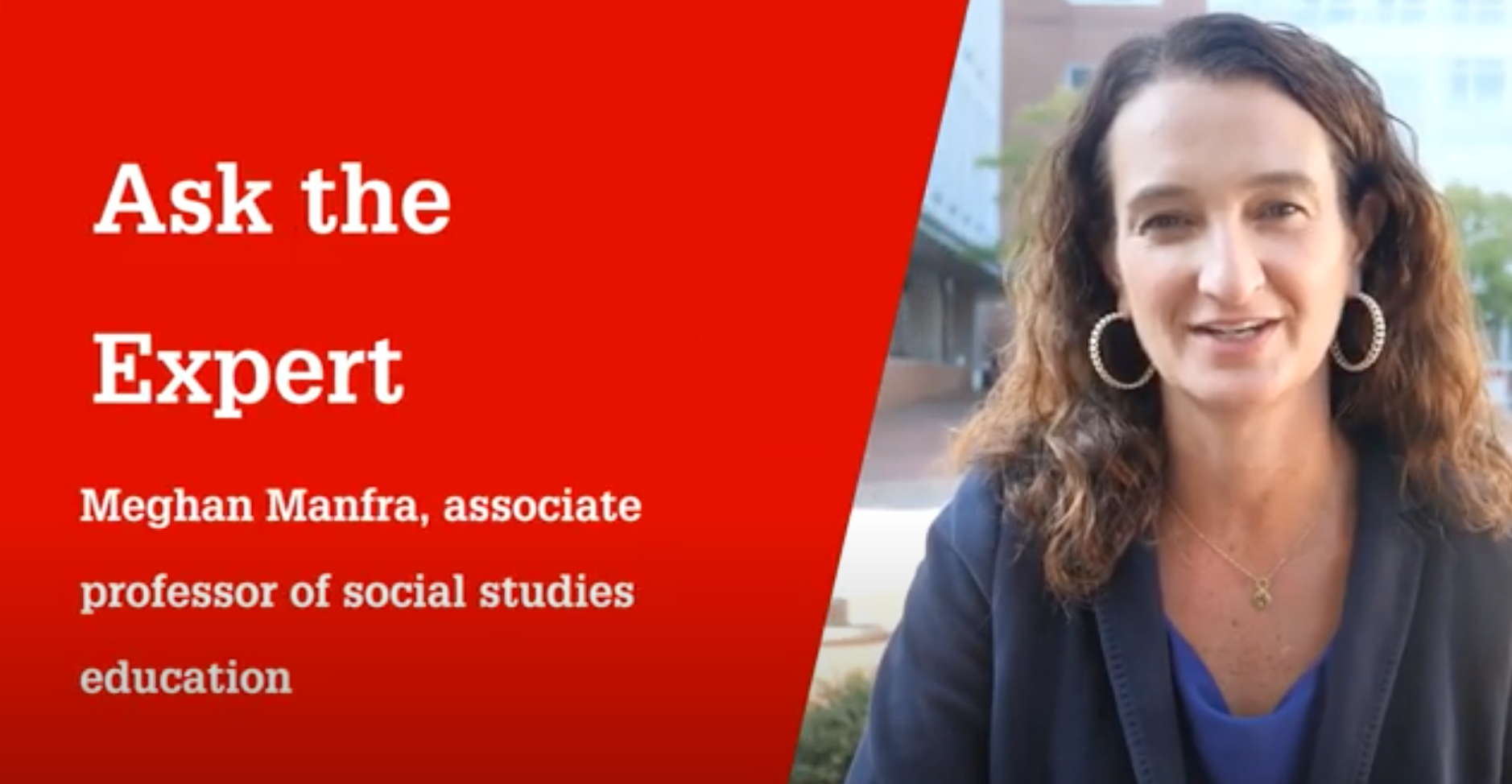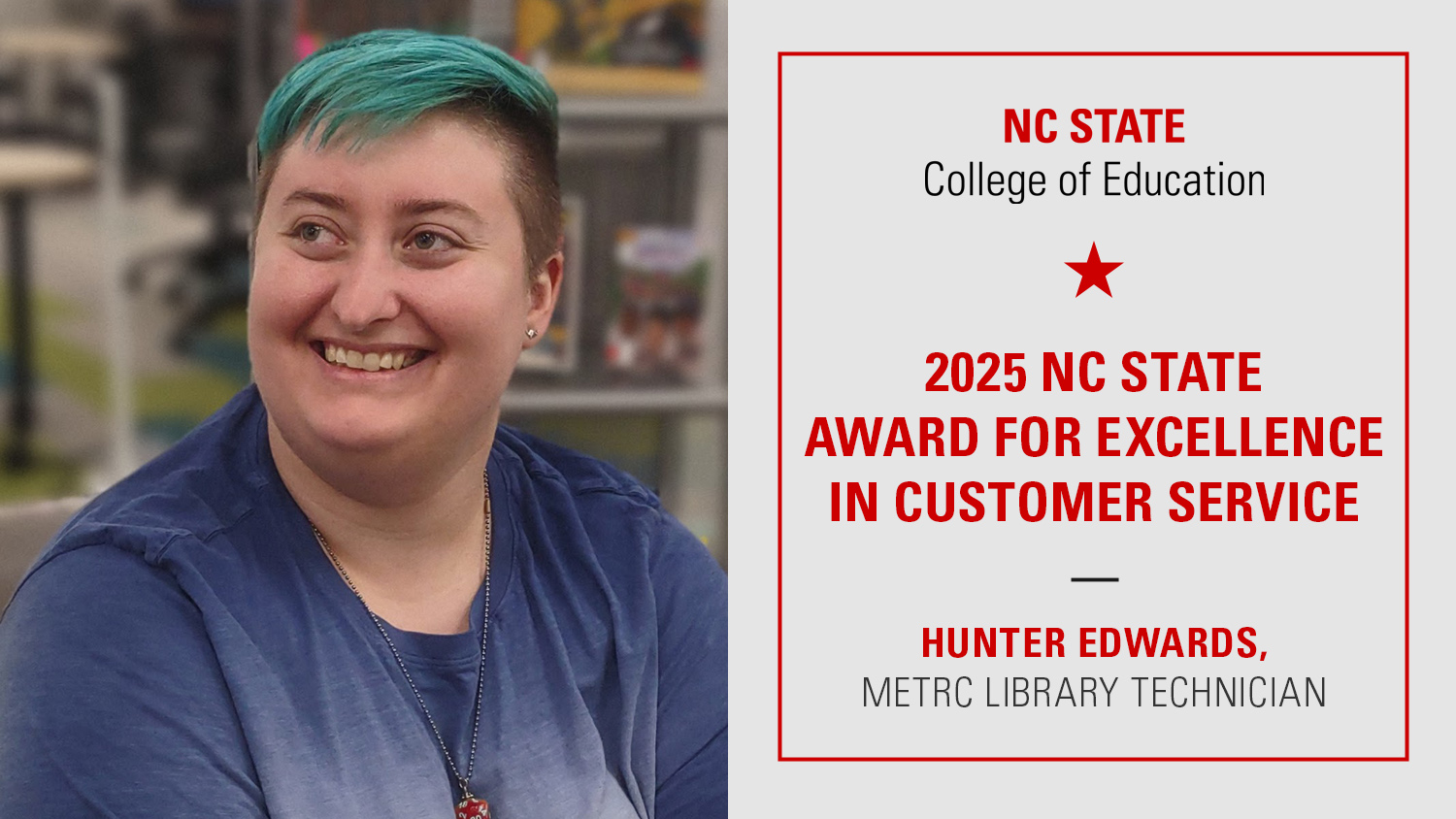Ask the Expert: What is Social Studies? A Way to Provide Students with ‘Good Background Knowledge and Skills’ to Participate in Democratic Society, Says Associate Professor Meghan Manfra

This is part of the monthly “Ask the Expert” series in which NC State College of Education faculty answer some of the most commonly asked questions about education.
Today’s K-12 students will be the voters and decision makers of the future, but in order for youth to be prepared for participation in a democratic society, they must first be able to understand the context of the issues the world is facing. That is why a quality social studies education is important for all students, says Meghan Manfra, Ph.D., associate professor of social studies education at the NC State College of Education.

Social studies is an interdisciplinary field that incorporates history as well as the social sciences, including economics, sociology, geography, anthropology and sociology, in order to provide students with democratic citizenship education.
“Social studies is inherently relevant to students. Any job or issue they face will have a social studies connection. If you think of some of the grand challenges facing our country or interdependent world, they all have social studies connections,” Manfra said. “It’s important for our students to have really good background knowledge and skills in order to understand the political and economic context of a lot of these issues that we’re facing.”
Manfra, whose research focuses on the integration of digital technology in social studies to improve student outcomes, says that technological resources have been helping students receive a better social studies education because of the access it provides to historical artifacts.
While many primary sources were previously only accessible to those who visited the archives, the Library of Congress has now digitized most of their collections, enabling social studies teachers to bring these resources into the classroom.
“This has opened up the potential for really authentic work in the classrooms where educators can use anything from historic investigations to geographic information systems in order to bring these social studies issues to life,” Manfra said.
Although educators can now utilize a wealth of primary resources, Manfra noted that access to materials does not necessarily equal accessibility for students. Teachers need to provide scaffolding to help students understand historical documents and artifacts brought into the classroom. Strategies to promote understanding and navigation of primary resources can include engaging questions, primary source analysis sheets or high-quality projects.
To assist educators in using primary resources in the classroom, Manfra has worked with the Library of Congress to help develop resources and materials and provide professional development for teachers. Recently, she worked on a grant-funded project, “Teaching with Primary Resources through Action Research,” which had social studies teachers act as action researchers as they used primary resources in their classrooms and studied the effect the approach had on student success.
Manfra, who studies action research and authored Action Research for Classrooms, Schools, and Communities, said the systematic and intentional reflection on practice can bring about positive change for social studies teachers.
“Through action research, teachers collect and analyze data focused on student learning outcomes. What I’ve found is in the process, they become more attuned to their students, they improve their pedagogical content knowledge and they become better advocates for their students,” she said.
In addition to exploring approaches to helping students understand historical artifacts, Manfra said that social studies educators must also help youth understand current events by working with them to develop media literacy skills.
To do this, social studies educators need to work to ensure that students understand the differences between reliable and unreliable sources of information, particularly online, where misinformation can spread quickly.
“Our job as social studies teachers is to help our students navigate this complex information landscape and to be able to identify fake news and credible sources,” Manfra said. “We think that by providing them with those skills, they’ll be able to become better democratic citizens online and better able to engage civically.”
Video by Ryan Clancy
- Categories:


